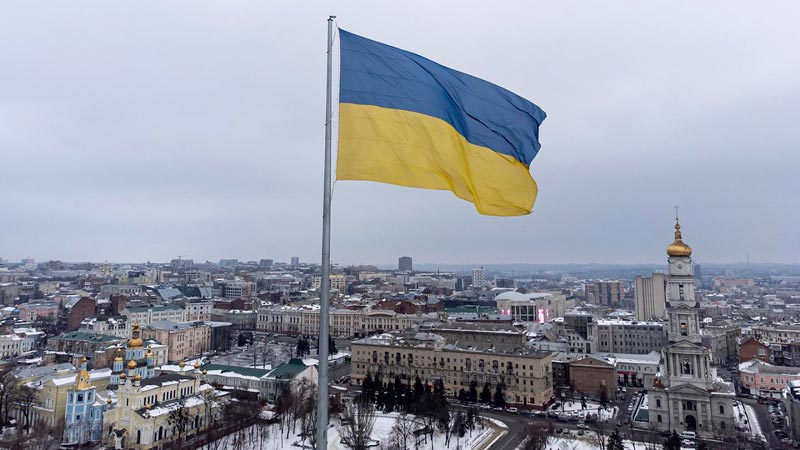
 By Natali Moss
By Natali Moss
Since the founding of the Templar Order - perhaps the first global corporation - they have become a tool and a measure of state policy efficiency. The British East Indian company during the heyday successfully performed the functions of power in India and China, even had its own army and fleet (until it became conflict with the state), and the transnational activity ordinary "business" presence abroad. The sub -war that Russia has solved against Ukraine also has a "corporate" aspect.
It contains:- in the field of economic pressure on the aggressor through sanctions; It is clear that corporations always seek to increase profit - this is the meaning of their existence. States are also interested in this, but for them there is a concept of political expediency, almost unknown private business.
States under the autocratic regime tirelessly ensure that corporations do not encroach on a established political course, regardless of the form of ownership and mechanisms of business management, democratic countries are trying to regulate the sphere of national interests by laws or by -laws. Private corporations, in turn, often do not want to operate within the "political interests" of states, they seek to bypass them, or to change, for example, insisting on the abolition of sanctions.
That is why businessmen rarely become successful statesmen: they think of categories of profit, and the state - categories of power, that is, political expediency. For the corporation, getting out of an interesting market means the loss of investments, profits, and the loss of competitor. For the state, it is an investment in the democratization of the aggressor, forcing it to peace, after which the corporation will return the lost. The question is how to convince corporations.
Business with an aggressor country committing military crimes of six months of war against Ukraine showed that if the sanctions regime against Russia is valid and effectively, then the problem with the release of private companies and corporations that are not subject to sanctions remains relevant from the aggressor market .
According to Moral Rating Agency (analytical structure with offices in London and New York, founded by merger and absorption specialists), as of February 24, 2022, 122 of the 200 largest world corporations operated in Russia.
As of August 25, 2022:- Only 34 of them openly condemned the aggression against Ukraine and left the market of the Russian Federation; -which public statements (such as 43, and 35 of them were left to work in Russia);- only eight came out completely or partially from the Russian market. Among those who remain, the vast majority are Chinese, but there are American and European and Japanese.
Democratic camp companies condemn Russian aggression against Ukraine, but continue business with Russia, for example, by importing fertilizers, oil and (or) gas. What restrains - on the example of Japan, of course, in each case the continuation of economic activity with the Russian Federation has its explanations. For example, according to Japanese statistics, exports from Hokkaido to Russia for six months of 2022 increased almost three times, imports - by 60%.
The absolute part in increasing exports is used cars that do not fall under sanctions. The incredible interest of the Russians in the used Japanese cars is explained by the termination of the supply of new cars from Europe and the inability of their own Russian auto industry to produce new cars in the conditions of sanctions. Imports to Japan are, to a large extent, seafood and energy, the dependence of which Japanese consumers cannot be overcome.
Discussions with representatives of companies, as well as with governments of countries that could influence them about the cessation of business activity with Russia have one standard explanation. According to them, a total violation of logistics routes of supply of important raw materials and energy that took place over the two years of the KOVid World Pandemia, have already led to a tangible, if not to say the catastrophic increase in prices for goods and services for the population.
With the beginning of Russia's aggression, introduced by "seven" and the EC sanctions against it, have led not only to pressure on the Russian Federation, but also to the aggravation of the situation in countries that support Ukraine.
The steps taken in the direction of correction of negative trends, such as limiting prices for Russian oil, searching for alternative sources of liquefied gas supply or launch of atomic and coal power plants, which have been preserved for several years - will bring results, but in medium term. There is also a confidence that the complete cessation of trade with Russia will be counterproductive.
An example of the continuation of multi -billion dollar companies with US and EU with China, although the political level of interstate relations is at least confrontational. Any separate corporation, regardless of the market value or country of registration, does not see the whole picture of geopolitical processes. That is why it is important to continue the dialogue with the governments, and this is one of the difficult tasks.










All rights reserved IN-Ukraine.info - 2022